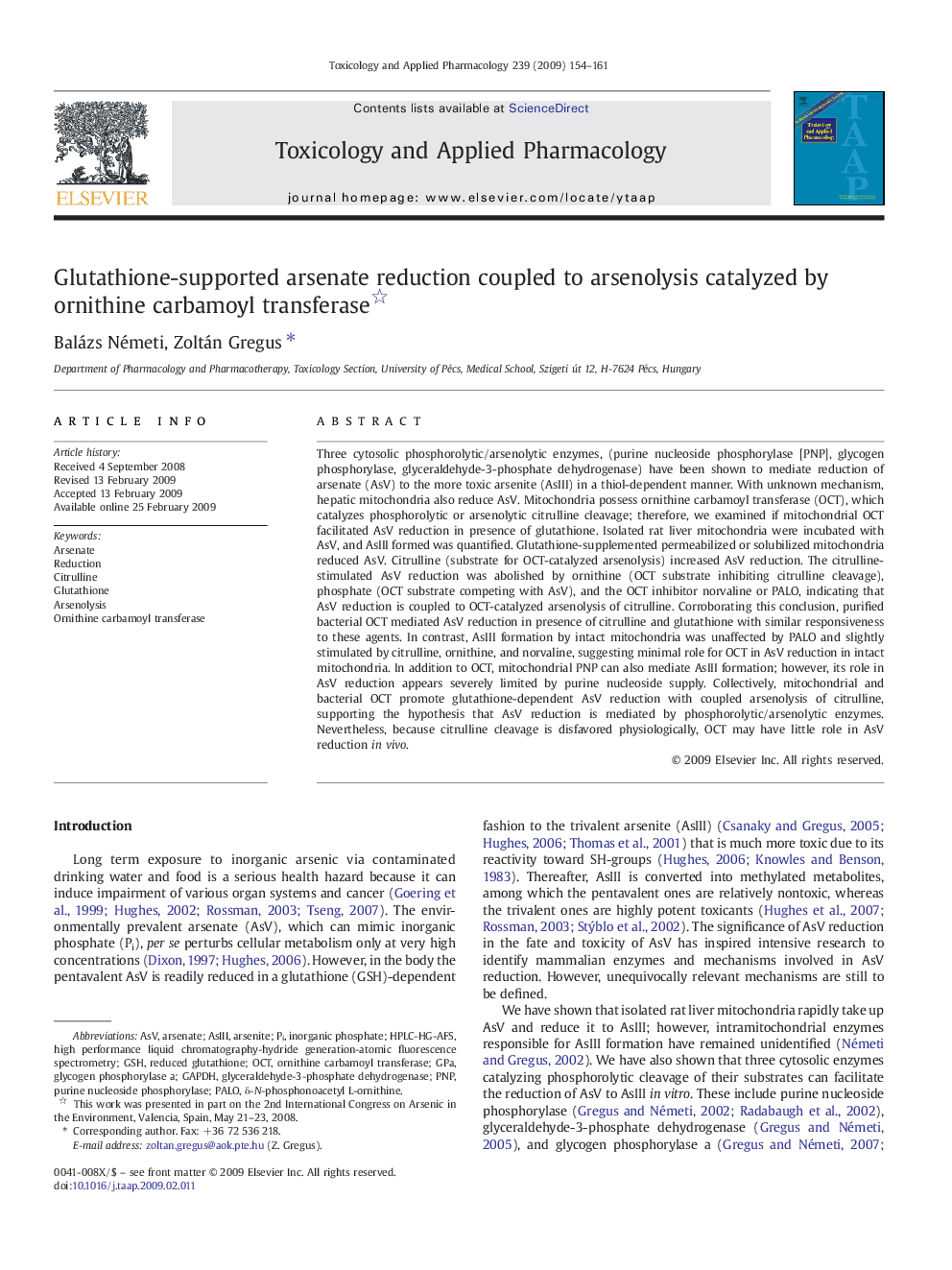| Article ID | Journal | Published Year | Pages | File Type |
|---|---|---|---|---|
| 5846943 | Toxicology and Applied Pharmacology | 2009 | 8 Pages |
Three cytosolic phosphorolytic/arsenolytic enzymes, (purine nucleoside phosphorylase [PNP], glycogen phosphorylase, glyceraldehyde-3-phosphate dehydrogenase) have been shown to mediate reduction of arsenate (AsV) to the more toxic arsenite (AsIII) in a thiol-dependent manner. With unknown mechanism, hepatic mitochondria also reduce AsV. Mitochondria possess ornithine carbamoyl transferase (OCT), which catalyzes phosphorolytic or arsenolytic citrulline cleavage; therefore, we examined if mitochondrial OCT facilitated AsV reduction in presence of glutathione. Isolated rat liver mitochondria were incubated with AsV, and AsIII formed was quantified. Glutathione-supplemented permeabilized or solubilized mitochondria reduced AsV. Citrulline (substrate for OCT-catalyzed arsenolysis) increased AsV reduction. The citrulline-stimulated AsV reduction was abolished by ornithine (OCT substrate inhibiting citrulline cleavage), phosphate (OCT substrate competing with AsV), and the OCT inhibitor norvaline or PALO, indicating that AsV reduction is coupled to OCT-catalyzed arsenolysis of citrulline. Corroborating this conclusion, purified bacterial OCT mediated AsV reduction in presence of citrulline and glutathione with similar responsiveness to these agents. In contrast, AsIII formation by intact mitochondria was unaffected by PALO and slightly stimulated by citrulline, ornithine, and norvaline, suggesting minimal role for OCT in AsV reduction in intact mitochondria. In addition to OCT, mitochondrial PNP can also mediate AsIII formation; however, its role in AsV reduction appears severely limited by purine nucleoside supply. Collectively, mitochondrial and bacterial OCT promote glutathione-dependent AsV reduction with coupled arsenolysis of citrulline, supporting the hypothesis that AsV reduction is mediated by phosphorolytic/arsenolytic enzymes. Nevertheless, because citrulline cleavage is disfavored physiologically, OCT may have little role in AsV reduction in vivo.
